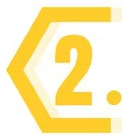Longitudinal analysis of the determinants of intimate partner violence in Spanish adolescents.
Intimate partner violence is a serious problem that affects not only adults but also adolescents. Some programs of study have found that 9 out of 10 adolescents report some subject psychological violence in their intimate partner relationships, 1 out of 5 physical violence and 1 out of 10 sexual violence. These statistics differ considerably according to gender and social, school and cultural context.
Adolescent intimate partner violence (IPV) has important health implications (physical injury, mental health disorders, suicide attempts and other risk behaviors, such as alcohol and drug abuse or bullying). It is also a predictor of intimate partner violence in adulthood. For all these reasons, its prevention is a priority issue and the knowledge of the determinants of IPV is fundamental to propose preventive strategies.
Many of these determinants are well established but some do not have sufficient evidence (use of cannabis and other drugs, pornography, sexting or certain series and video games), mainly because they have been evaluated in cross-sectional programs of study . To evaluate them adequately, it is necessary to have a follow-up period, typical of longitudinal programs of study .
In a previous project 'Determinants of intimate partner violence in adolescents. Prevention from the school setting' (2019-2022), we obtained data from 2,231 Spanish adolescents (more than 5,000, including adolescents from other Hispanic American countries) on the opinions, attitudes and behaviors of schooled adolescents, with special interest in PPV.
This project is a continuation of the work developed between 2019 and 2022: a new wave of responses (2 years later) from adolescents who have already participated will be incorporated. Through an anonymous questionnaire , we will identify the personal and situational factors associated with VPA in adolescents attending school in Spain, taking into account their educational and partner-cultural diversity and from a gender perspective.
This research is part of project YourLife, an international study aimed at understanding and improving the lifestyles and personal relationships of young people, as well as the factors that influence them. A questionnaire is used to collect opinions, attitudes and behaviors of schooled adolescents.
9/10
NINE OUT OF TEN ADOLESCENTS REPORT SOME FORM OF PSYCHOLOGICAL VIOLENCE subject
1/5
ONE IN FIVE ADOLESCENTS REPORT SOME PHYSICAL VIOLENCE subject
1/10
ONE IN TEN ADOLESCENTS REPORT SOME SEXUAL VIOLENCE subject
The main hypotheses we put forward are as follows:
 Both girls and boys suffer and exert psychological violence, but girls have a higher rate of psychological violence. victimization than boys. Physical and sexual violence is exercised mostly by boys.
Both girls and boys suffer and exert psychological violence, but girls have a higher rate of psychological violence. victimization than boys. Physical and sexual violence is exercised mostly by boys.
 The stereotypes gender, myths about love and justification of violence at wave 1 increase the risk of suffering and/or exercising some subject of VPA at wave 2 (2 years later).
The stereotypes gender, myths about love and justification of violence at wave 1 increase the risk of suffering and/or exercising some subject of VPA at wave 2 (2 years later).
 Certain risk behaviors of adolescents (alcohol and drug consumption, certain series and video games, bullying, internship sexting, pornography consumption and other sexual risk behaviors) in wave 1 increase the risk of exercising and/or suffering some subject of VPA in wave 2.
Certain risk behaviors of adolescents (alcohol and drug consumption, certain series and video games, bullying, internship sexting, pornography consumption and other sexual risk behaviors) in wave 1 increase the risk of exercising and/or suffering some subject of VPA in wave 2.
 Determined characteristics of the adolescent (e.g., gender or age), their personal resources or assets (such as the Degree differentiating self, planning and decision-making skills), and those provided by the environment (e.g., a parental educational style based on affection and supervision, among others) in wave 1 may protect from suffering and/or exerting VPA in wave 2.
Determined characteristics of the adolescent (e.g., gender or age), their personal resources or assets (such as the Degree differentiating self, planning and decision-making skills), and those provided by the environment (e.g., a parental educational style based on affection and supervision, among others) in wave 1 may protect from suffering and/or exerting VPA in wave 2.
To identify the personal and situational factors associated with intimate partner violence in adolescents attending school in Spain, taking into account their educational and partner-cultural diversity and from a gender perspective. This knowledge of profile of adolescents involved in some subject of intimate partner violence can be used by various social agents (schools, families, public policies, etc.) to design prevention activities adapted to the reality of specific groups.
1. To determine the prevalence of the different types of PVA, both experienced and perpetrated, among girls and boys attending school.
2. To describe the profile of school adolescents who report being involved in some subject of intimate partner violence: age, gender, general beliefs and beliefs about love, subject of school center, Degree of differentiation of the self, age and gender of the partner, gender stereotypes, justification of violence, substance use, pornography, consumption of series and video games, internship of sexting and bullying, relationship with parents and messages they receive at school and in the family about intimate partner relationships.
3. To evaluate the association between the different personal and situational factors of the adolescents (identified in goal 2) and the different types of IPV, both experienced and perpetrated. These associations will be evaluated in longitudinal multivariate analyses to assess the temporal sequence between possible causes and APV.
4. Elaborate a report for each school with the results of their students, and provide an online training session for these schools. An updated report will also be developed on the status of VPA in Spain, which will be inserted in a broader guide on VPA prevention.
researcher manager
 Alfonso Osorio
Alfonso Osorio

aosorio@unav.es

group "Infinity: family, love and sexuality."
RESEARCHER TEAM OF THE UNIVERSITY OF NAVARRA
→ Jokin De Irala (Institute for Culture and Society)
→ Martiño Rodríguez-González (Institute for Culture and Society)
→ María Calatrava Martínez (Institute for Culture and Society)
→ Aránzazu Albertos (School of Education and Psychology )
→ Cristina López del Burgo (School of Medicine).
